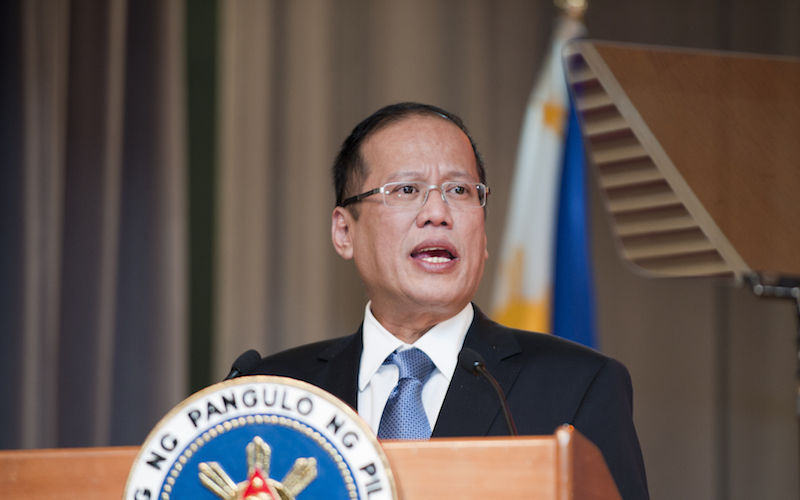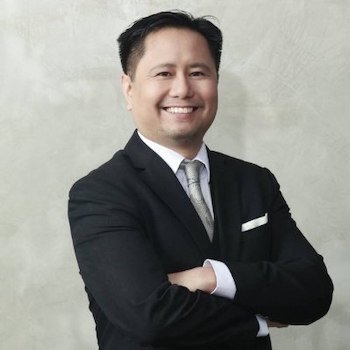
Aquino Challenges Filipinos to Reject the Status Quo
Following relentless attacks and a string of impeachment charges against Philippine President Aquino for having allegedly instituted his own “presidential pork barrel,” we argued in a recent article that even with majority support from Congress, political dynamics may drastically change once Aquino delivered his fifth State of the Nation Address (SONA). In the hours leading up to the SONA, Aquino’s ratings were their lowest since he was elected in 2010. As is typical of the Philippines’ circus-like politics, some opposition groups walked out mid-speech and effigies were burned at the doorsteps of Congress. They must have been disappointed, in the end, however, as Aquino once again defied expectations.
Aquino’s address, made before a joint session of Congress, started out somber, and naturally included a recital of his Administration’s many accomplishments. There was little mention of the Supreme Court’s recent controversial decisions, however, nor was there insinuation about the failed plunder charges made against past presidents, or allusion to the impeachment charges against him. What Aquino showcased instead were testimonies of ordinary people about the difference the actions of his administration have made to them – including a female police officer, students who benefitted from technical-vocational training (under the controversial “Disbursement Acceleration Program” (DAP) no less), soldiers who fought rebels in Mindanao, and families of the slain and fallen.
Aquino stayed close to a technical showcasing of his ‘expanded conditional cash transfer programs’ to direct beneficiaries, the lower rate of poverty year-on-year, tax reforms, and a meaningfully larger tax collection rate.
He pointed to a significantly lower debt-to-GDP ratio, in turn generating funds otherwise earmarked for debt servicing, but now designated to much needed social services.
The speech highlighted completed public-private partnership projects, the country’s newly minted investment grade status (in 2013), intervening ratings upgrades, improved macroeconomic fundamentals, better governance more generally, last year’s World Economic Forum (hosted in Manila), and a forthcoming APEC Summit (to be hosted) next year. Aquino also pointed to a 29% drop in murder and homicide rates in Metro Manila, in large part driven by reforms made to the police force.
As has been the case with prior SONAs, Aquino addressed lingering questions regarding whether he has been able to deliver on the promises he made in 2010, where funds have been allocated, and whether crooked politicians are now in jail. The President was careful not to name names and only mentioned the controversial DAP in passing, with the implicit causal assertion that any legal infirmity of the DAP will impede the country’s prospects in sustaining Asia’s second fastest growing economy. Responding to the DAP directly, Aquino proposed the passage of a supplement to the budget. The Teflon President then noted that the noisiest among his critics, were opposed to transparency – which has been a hallmark of his presidency.
Aquino’s speech succeeded in reminding Filipinos of what can and should be an appropriate baseline for critique, including a more objective assessment in the aftermath of the ‘Zamboanga Siege’ in September 2013, when Islamist groups took control of, and held hostage the southern port city of Zamboanga, engaging the Philippine army in urban combat for two weeks. He also referenced the Mindanao rebellion, the Bangsamoro Agreement, Super Typhoon Haiyan, and the need for establishing a minimum credible defense posture in the South China Sea, among other topics.
It would of course be too much to expect for Aquino to be able to remedy all of the endemic problems facing the Philippines in his single 6-year term. The truth is that no Philippine president before him has accomplished so much in such a short period of time, and against such odds. Aquino was tasked by the Filipino people with helping the country help itself to realize its potential. That implied tackling corruption head on, dramatically improving tax revenues, and improving the foreign investment climate. He has done all that, and more.
So, what is the president really being criticized for by his opponents? Certainly not his many achievements. Rather, it is the notion that ‘one of their own’ would challenge the country’s elite and many entrenched interests to start doing things differently. That is ultimately the only reason why the Philippines achieved its investment grade rating, and it is the only hope that the country has for maintaining it.
Our concern is that, by continuing to engage in circus-like political shenanigans and challenging the person who is standing up to the status quo, opposition political forces will prompt the foreign investment community to begin to question the sanctity and durability of the country’s progress over the past four years. We are also concerned that much of the progress made under Aquino’s tenure will either erode or disappear once he leaves the scene – especially if he is replaced by someone promoting business as usual.
The Filipino people deserve the president they elected in 2010, including a declining poverty rate, rising standard of living, increasing rate of investment, and global recognition that the country can indeed be a desirable place to do business. Filipinos have an obligation to themselves to continue to elect the kind of leaders who will stand up to the fraction of a percent of the people who control up to 80% of the country’s wealth.
With its near agricultural self-sufficiency, abundant natural resources, high literacy rate and growing work force, there should be no reason for the country not to succeed in the future. In the end, that depends on what the Filipino people will demand of their leaders. It is our hope that they will continue to challenge the status quo, so that they may embrace their well-deserved future.
This article was originally posted in The Huffington Post.


